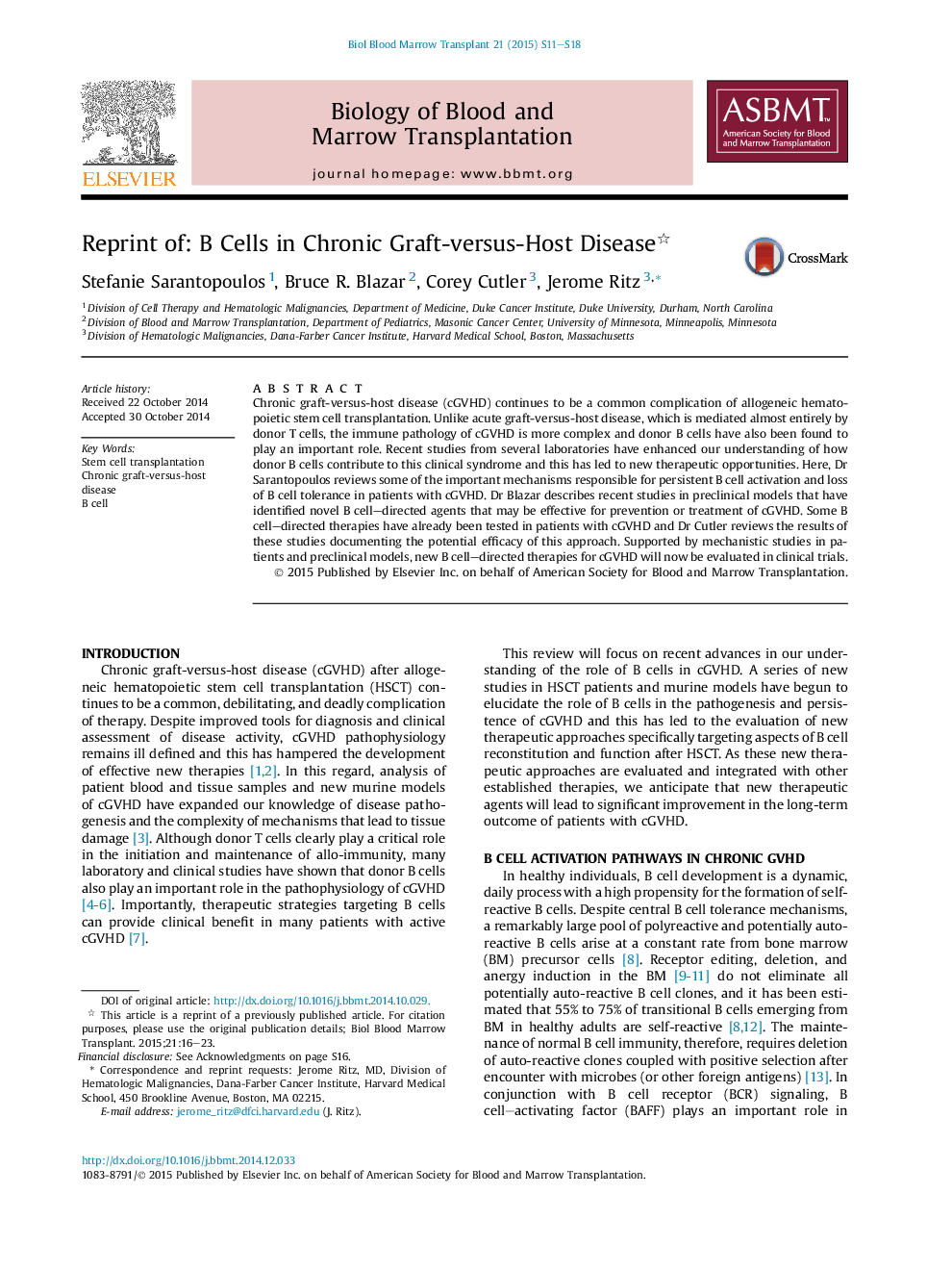| Article ID | Journal | Published Year | Pages | File Type |
|---|---|---|---|---|
| 2101577 | Biology of Blood and Marrow Transplantation | 2015 | 8 Pages |
•Donor B cells contribute to immune pathology in chronic graft-versus-host disease.•High levels of B cell–activating factor after allogeneic hematopoietic stem cell transplantation promote the survival of allo- and auto-reactive B cells.•Persistent activation of B cell signaling pathways is evident in chronic graft-versus-host disease.•Inhibition of B cell signaling can prevent or reverse tissue injury in murine models of chronic graft-versus-host disease.•B cell–directed therapies can provide new clinical approaches for prevention or treatment of chronic graft-versus-host disease.
Chronic graft-versus-host disease (cGVHD) continues to be a common complication of allogeneic hematopoietic stem cell transplantation. Unlike acute graft-versus-host disease, which is mediated almost entirely by donor T cells, the immune pathology of cGVHD is more complex and donor B cells have also been found to play an important role. Recent studies from several laboratories have enhanced our understanding of how donor B cells contribute to this clinical syndrome and this has led to new therapeutic opportunities. Here, Dr Sarantopoulos reviews some of the important mechanisms responsible for persistent B cell activation and loss of B cell tolerance in patients with cGVHD. Dr Blazar describes recent studies in preclinical models that have identified novel B cell–directed agents that may be effective for prevention or treatment of cGVHD. Some B cell–directed therapies have already been tested in patients with cGVHD and Dr Cutler reviews the results of these studies documenting the potential efficacy of this approach. Supported by mechanistic studies in patients and preclinical models, new B cell–directed therapies for cGVHD will now be evaluated in clinical trials.
